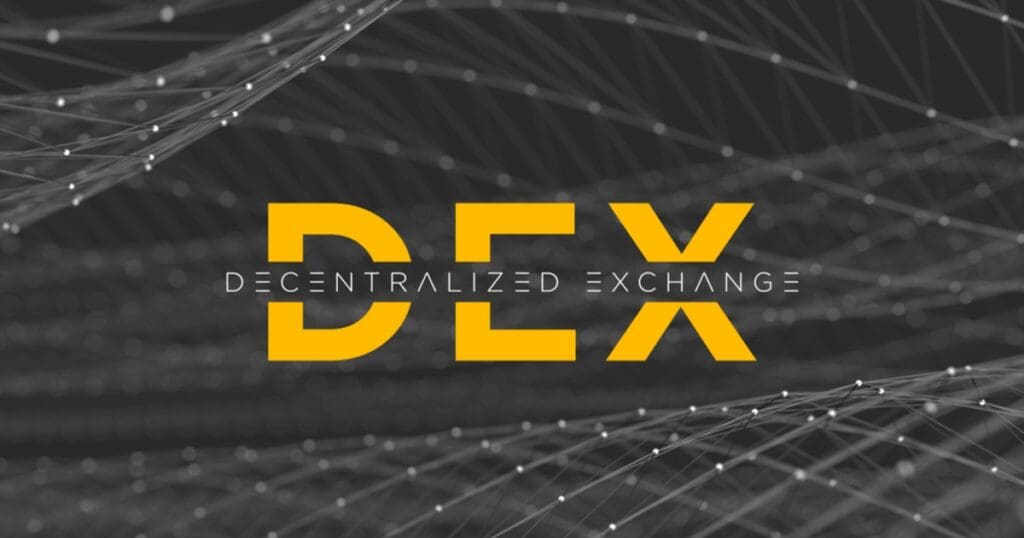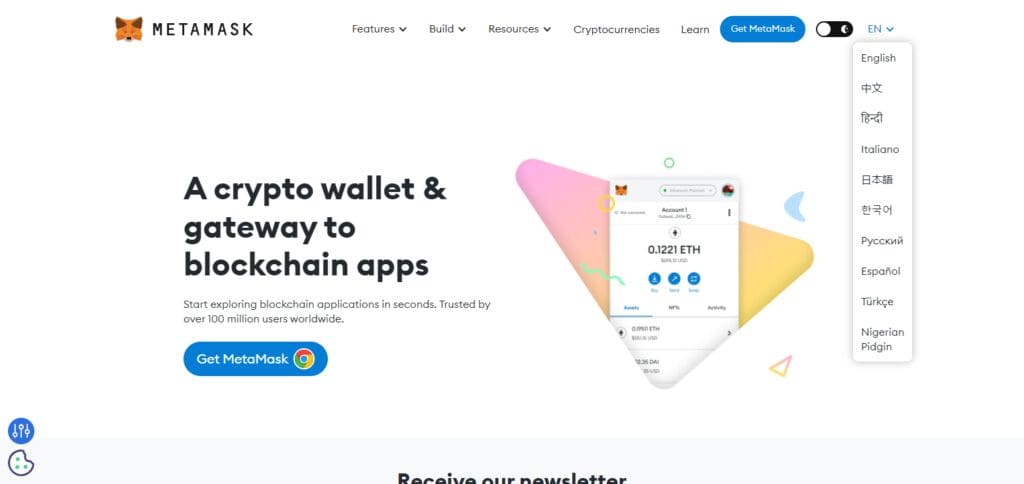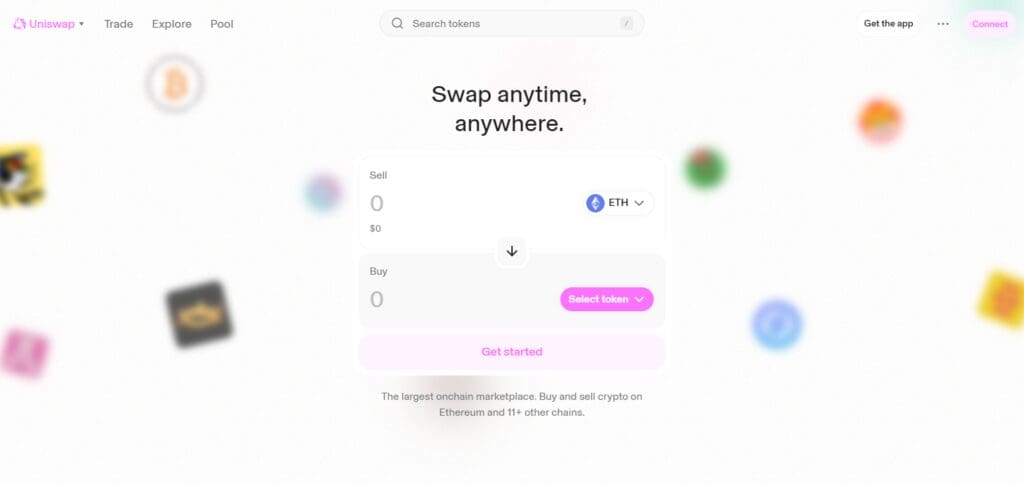In this article, I will discuss How to Trade Crypto on Decentralized Exchanges (DEXs) including the advantages, processes, and essential steps.
DEXs enable you to trade peer-to-peer, which means greater security and control over your funds.
Whether you are a crypto rookie or a pro, this guide will help you trade on a DEX with ease.
About Decentralized Exchanges?
Decentralized exchanges (DEXs) are trading platforms that allow users to buy and sell cryptocurrencies directly with one another without intermediaries.
These exchanges operate on a blockchain network, which increases privacy, security, and control over assets.

Users keep possession of funds in non-custodial wallets while trades are performed through smart contracts.
Popular DEXs like Uniswap and PancakeSwap facilitate trades through automated market makers (AMMs) and liquidity pools, ensuring smooth trustless transactions.
How to Trade Crypto on Decentralized Exchanges
When trading cryptocurrencies in decentralized exchanges (DEX’s), Here’s a case study with Uniswap, a popular DEX in the Ethereum blockchain.
Create a Cryptocurrency Wallet
A proper cryptocurrency wallet is required to interact in DEXs. As for now, MetaMask is the most famous digital wallet that works as a browser extension and interacts with dApps.
Install MetaMask
Grab our trusty MetaMask extension from the official site to your browser.

Create A Wallet
Set up your wallet following the instructions displayed and store the seed phrase securely for future use in case you need to recover the account.
Load Your Wallet
Deposit Ethereum (ETH) to your MetaMask wallet as Uniswap greatly functions with ETH and ERC-20 tokens. Before, you could get ETH from centralized exchanges and transfer it to your MetaMask address if you want.
Visit Uniswap

Go to Uniswap via app.uniswap.org. Make sure to always check the site to not be scammed.
Linking of Wallet
Tap on the Meta Mask option after clicking on the “Connect Wallet” button located on Uniswap’s page. After doing this, you will receive a prompt on Meta Mask. Agree to connect in order to link your wallet with Uniswap.
Trading Token Selection
After logging into Uniswap, select the tokens you want to trade. For example, if you want to change ETH to DAI (stable coin), lip on the lower box and scroll to ETH. On upper box click on DAI.
Transaction Transaction Summary
Type in the amount of ETH that you want to switch. Uniswap will show the estimated amount of DAI you will receive with the exchange range and the liquidity provider fee details.
Execute The Exchange
Now click on “Swap” and press confirm. Confirm the transaction details on the next prompt and click on confirm. Meta Mask will ask for your approval and will present the required gas fee for the Ethereum network so that you can approve this transaction in Meta Mask and initiate the swap.
Confirmation Wait Time
After confirming, the transaction is executed on Ethereum blockchain and after a little while you will be able to see the status of the transaction on Meta Mask or on Etherscan.
How Decentralized Exchanges Work

Smart Contracts
DEXs utilize smart contracts to execute trades. These self-executing contracts contain the rules of the transaction and are stored in the blockchain.
Liquidity Pools
DEXs unlike centralized exchanges do not use order books, instead, they use liquidity pools, because of the nature of decentralized exchanges. Users can earn fees in return for providing liquidity by contributing their tokens to these pools.
Automated Market Makers (AMMs)
Without the orders of buyers and sellers having to match, AMMs, which are algorithms that set the price of assets based off the liquidity pool’s supply, enable users to trade, doing away with the need to have buyers and sellers present.
No Custody
DEXs are decentralized and therefore non-custodial, making it so that private keys and funds remain in user’s control for the duration of the entire process, as opposed to centralized exchanges where hacks and thefts are very frequent.
Decentralized Governance
Several DEXs permit those holding tokens to take part in governance decisions such as protocol upgrades and changes in how fees are structured.
Setting Up for Trading on DEXs
Choose A Compatible Wallet
You will need to pick a wallet that takes you into the DEX world, such as MetaMask, Trust Wallet, or a hardware wallet like Ledger which is more secure.
Fund Your Wallet
Ensure to deposit cryptocurrency into the wallet. You should have some amount of the primary token like ETH or BNB, so you can use it to pay for transaction fees on the DEX.
Connect to the DEX
Go to the DEX of your preference and click on ‘Connect Wallet’. Ensure you are on the right blockchain network prior to selecting this option.
Select Your Trading Pair
Decide which crypto pair you wish to transact with like ETH/USDT, and select it from the DEX interface.
Trading on Decentralized Exchanges
Executing a Trade
Variant Selection
Select a tradeable pair on the DEX interface, for example, ETH and USDT or BTC and ETH.
Filling Trade Parameters
Insert the desired amount to purchase or sell. The platform shows, as a minimum, the current respective price and rates of the transaction.
Approving, Modifying, or Cancelling Trades
Make sure you review the entire details of the trade, including the overall amount, fees, and other relevant details before proceeding to confirm the trade.
Trades Management
Monitoring Open Positions
Manage your trades by going to the “Open Orders” or “Trade History” on the DEX platform.
Creating Stop-Loss and Take Profit Orders
Certainly, the majority of the DEXs allow the creation of orders to set stop-loss or take-profit, thus making it easier to automatically implement trading tactics while avoiding losses.
What Are the Costs of Trading on a DEX?
When you trade on decentralized exchanges (DEXs), it is crucial to understand the costs that you may incur which can include protocol fees and gas fees.
Protocol Fees
Most DEXs will charge a fee for every transaction carried out on their platform. This charge is usually a percent of the sum of the transaction and is meant to pay back liquidity providers who trade by offering the required assets. For example, Uniswap DEX, a well known DEX, charges a set fee of 0.3% for every trade which is used to pay the liquidity providers on the platform.
Gas Fees
Every transaction done on blockchain when executed will need verifications this means that a fee should be paid to the network, popularly termed a gas fee. In certain networks like Ethereum, these fees depend on how busy the network is as well as the complexity of the transaction.
For example, the gas fee, which is the fee payable during periods when the network is congested, can be quite high and this can affect the general profitability of trading on DEXs.
Benefits of Decentralized Exchanges
Security and Privacy
Because users hold their private keys, there is low risk of hacking and theft. Also, DEXs do not require users to share personal data, which enhances at the same time privacy.
Control Over Assets
Users are in complete control of their funds anytime with no deposits assets that need to be lodged to an exchange firewall protected wallet.
Transparency
Every transaction is executed on the blockchain so therefore all information can be verified at any point.
Lower Fees
Due to the absence of middlemen who extract commissions, decentralized exchanges frequently have smaller fees than centralized ones.
Decentralized exchanges (DEXs) are a crucial part of the cryptocurrency world as they allow users to trade digital assets without the use of third-party intermediaries. Below are some of the most popular DEXs:
Some Popular Dex Exchange
1. Uniswap
Uniswap is a DEX that operates on the Ethereum blockchain and is famed for automating the token swapping process through smart contracts. It also incorporates the Automated Market Maker (AMM) model which enables users to trade ERC-20 tokens directly from their wallets. Many traders around the world prefer using Uniswap due to its simple interface and high liquidity.
2. PancakeSwap
PancakeSwap was created on the Binance Smart Chain (BSC) to facilitate speedy and cheap token swaps. It is compatible with BEP-20 tokens and includes functionalities such as yield farming, staking, and lotteries. The native token on this platform CAKE is also utilized to incentivize liquidity providers and for governance.
3. SushiSwap
In addition to yield farming, staking, and lending, SushiSwap was originally a Uniswap fork and has also expanded its services to operate on various blockchains like Ethereum, Binance, smart chain, and Polygon. This allows users a greater range of trading options.
4. Curve Finance
The company focuses on the exchange of stablecoins, charging very low slippage as well as fees. Because of its effective design for swapping stablecoins, it is now the most favored platform for traders who wish to exchange stablecoins with little price impact.
5. Balancer
Balancer enables portfolio management through its design as a multipoind AMM. These enable users to setup liquidity pools with multiple tokens that have different values and can be modified.
All of them have different focuses and thus suit different kinds of trading activities. Look for supported tokens, fees, ease of use, and the measure of security provided to identify if the platform corresponds with your trading goals.
Pros & Cons
Pros
Safety and Self-custody: Users have custody of their funds and are less prone to hacks or thefts connected to centralized services since private keys are held tightly by users.
Anonymity: In most cases, DEXs do not require KYC (Know Your Customer) or any other private data, thus offering better anonymity while carrying out the transactions.
No Third Parties: Users transact directly without the use of a third party, intermediary, or central authority to facilitate the transaction.
Borderless Trading: DEXs and their trading services can be accessed freely by anyone around the globe as long as there is internet access. No geographic limitations.
Community Governance: Users of many DEXs can vote on issues such as new protocol implementation and other activities, using governance tokens issued by the DEX.
Cons
Less Liquidity: In comparison with centralized exchanges, some decentralized exchanges may have lower liquidity in the market, making trades less effective and resulting in greater slippage.
Usability: Complex processes and interfaces of many DEXs as opposed to centralized exchanges makes them less suitable for beginning traders.
Gas Fees: Even though trading is offered at no or low cost on DEXs, users still have to incur expenses such as network transaction fees (gas fees on Ethereum) that do depend on network congestion.
Reduced functionalities: DEXs cannot take advantage of margin trading, advanced orders, or even customer services which are available in centralized exchanges.
Transaction Speeds: Some DEXs may work off a slower blockchain, resulting in slower transaction speeds, particularly during busy periods.
Conclusion
To conclude this report, trading cryptocurrency on decentralized exchanges (DEXs) poses many advantages such as improved safety, protection, and asset control.
Decentralized trading can easily be navigated by funding a compatible wallet and selecting a DEX before following the required steps to trade.
DEXs, while facing hurdles of reduced liquidity and elevated charges, are still preferred by many traders due to their user empowerment and decentralization features.
Information and precaution enable DEXs to serve DEXs to serve as powerful instruments of convenience for secure and effective crypto trading.









